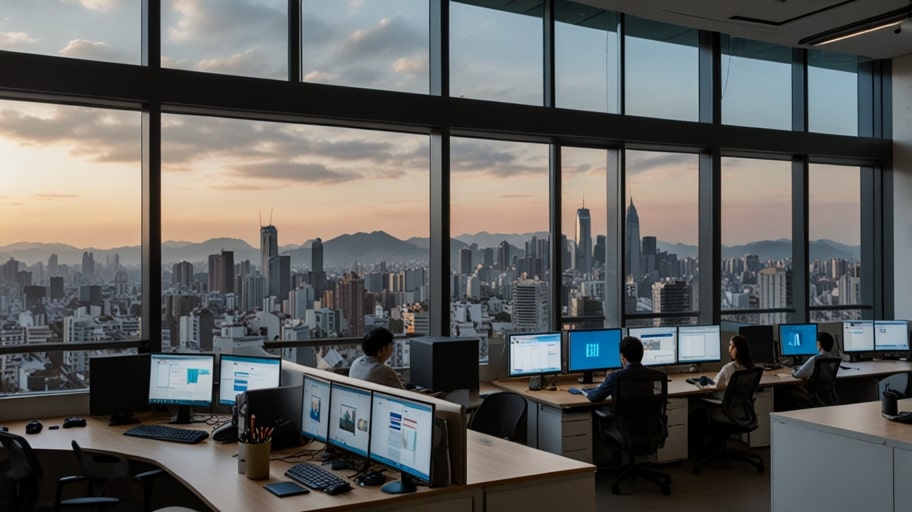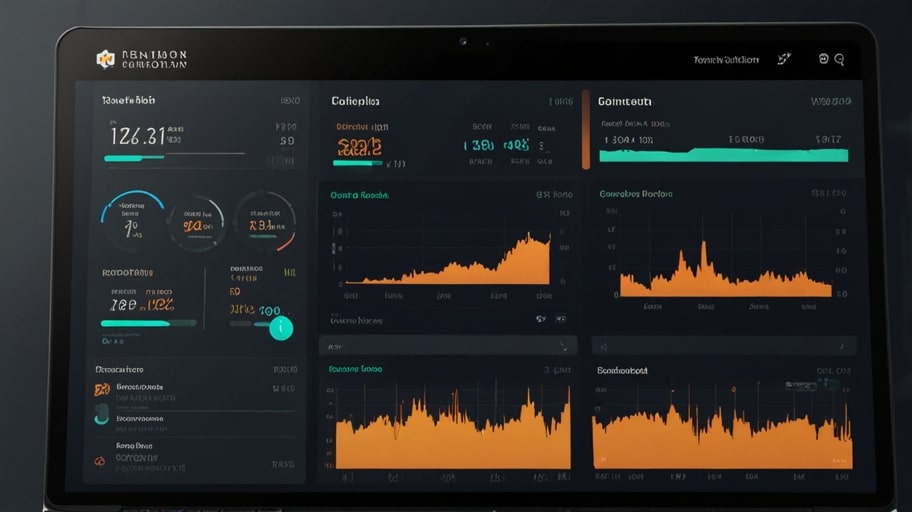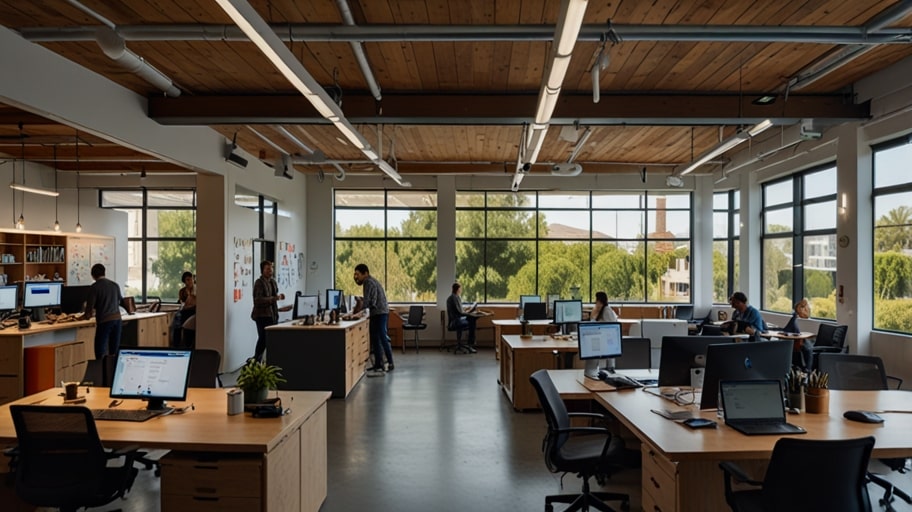A startup from South Korea that makes AI chips that do inference has pulled off a real stunner: they have rejected a tempting $800 million acquisition offer from a United States technology company. The decision is a bold move showing the startup’s commitment to stay on its own and fight with industry leaders in the fast-growing semiconductor industry.
This company originates from Seoul and has its main focus on the chips intended for the AI model deployment area putting the efficiency at the top of their priorities list instead of just raw power.
The info about one of its new chips, a stunning pick, nearly matches first-rate products thus attracting the attention of investors around the world. Remaining an independent company reflects their belief in the sincerity of their new technologies and the future strategy of the company.
The initial team is convinced that their independence will provide a great source of creativity and will allow them to be much more flexible in adopting the dynamics of the industry. The receiving of the buyout is aimed to do a Series C funding round to carry out its heavy work. The money will be used for further development of new products, enlargement of the area of production, and taking the lead in the world of AI hardware.
The longer the list of applications for artificial intelligence chips the more urgent is the problem of the need for such chips with the progress of the technology in the sector of artificial intelligence (AI). Currently, there’s a high level of demand for the company’s products and it hails from clouds, autonomous vehicles, etc.
The company’s technology has a very good way of operation because of its advanced neural networks and reduced power consumption allowing renewable energy to suffice a very good point. Its chips give great potential to spread the use of AI to the third rating of technology, so even small firms are able to get on line with big shots in computing and thereby put up very complex models at a very low cost.
The offer of acquisition was coincided with the startup gaining attention and its chips as a power source for the most avant-garde projects. Refusing the offer was not an easy thing for sure, the growth of the startup would have been faster thanks to the resources of the U.S. giant. However, the team preferred to remain in charge and not lose control thus avoid stagnation by being subsumed into the created by a conglomerate.
Investors are excited since venture capital companies are closely observing the start-up’s prospects. It is expected that the Series C of the firm will be very successful as top companies are said to be interested, which in turn reflects their confidence in its business plan.
The money will make sure that the production process is more efficient and that a broader range of the market will be their target with the shift to the cloud, while the company will also remain a prominent player on the worldwide stage.
The chip industry is known for its intense competition, which is mainly caused by the big corporations’ monopoly. The risk that the start-up takes to become a major player lies in its capacity of increasing the production without relying on the support of a big tech company. Their production of small-batch quantities and strict focus on specialized AI applications might benefit from the identified part of the market.
According to some critics, the decision to say no to the proposal was very bold. They backed up their viewpoint with evidence arguing that not only finances, but also other resources are required to compete at that level.
In the case of the short-term possibility of the global semiconductor shortages, the production and the securing of the supply chain are the pain points. However, the fact that the start-up company delivered the chips in the market faster than it was expected from them means that this company can be successful in these matters.
The company instills the engineer-and-discipline collaboration culture as a way of being agile. As a result, they have developed and produced the flagship chip, which far outstrips all the other companies in energy efficiency.
With the company’s remaining independent, it means they will not only keep the flexible culture but also continue to attract some of the brightest minds in the industry, due to the fact that very large bureaucratic companies might have weak spots in the aspects where the startup could provide more.
As the newborn start-up comes from the same place as South Korea’s goal to become the forefront of AI and semiconductors, both developments spread and complement one another in a synergistic fashion. Alongside various other factors, government support and a very competitive tech ecosystem encourage the growth of this sector.
The company has executed this strategy effectively by developing local talents and partnerships, which have allowed it to tap into a wide range of expertise to fuel its growth.
The use of the chips by the selected customers, such as the one-swarm-driving drones and the smart healthcare firms, gives a clue of how fast the success of these chips is spreading in the market.
The customers who jumped on the innovation wheel first are happy with the performance, as the chips enable no delay and even save them money, which was not the case initially. These achievements build the company’s reputation as it makes its move to the car and the IoT sectors, which are dominated by big companies.
The decision to go solo in the world of technology has been a subject of much discussion. Some people see it as a courageous statement of leadership; others consider it an enormous risk when technology has changed all the rules in the game. However, the leaders at the startup are still positive, that is, they have pointed to a line-up of next-generation chips to be introduced within two years.
The flow of artificial intelligence (AI) chips worldwide is said to amount to $200 billion by 2030, with generative AI and edge computing as the principal drivers. The startup’s single-minded focus on inference—running trained models efficiently—situates it at the center of this wave. Such chips can be used to power various things, ranging from smart cities to medical diagnostics.
Among the huge tasks to be confronted are talent wars and geopolitical tensions that have become factors in supply chain disruptions. Through the strategies of local fabrication, the startup is managing to survive and even thrive, and local strategic alliances are part and parcel of these strategies.
These strategies aim to make the company invulnerable to unexpected events and, at the same time, to make it possible for production to increase in order to satisfy the rising demands.
The proceeds from the Series C round are to be spent not only on paying highly qualified employees but also on their recruitment, so that they can be drawn from any part of the world.
The establishment of the company’s Seoul headquarters is a positive sign that it is becoming the center of AI hardware innovation, as evidenced by the high interest of potential employees. This gathering of brilliant minds will take over the leadership role of the company, not only in the field of R&D but also in the business side of the market.
By opting for independence, the startup sends out a message to the people that, though small, they can fight back in industries heavily dominated by giants. The narrative of the company is resonating with entrepreneurs around the world as it is showing that determination and pursuit of a dream can match the power of wealth.
As it charts its way through the waters whose paths are yet to be explored, the tech world remains watchful and eager to know the next step of the startup.




